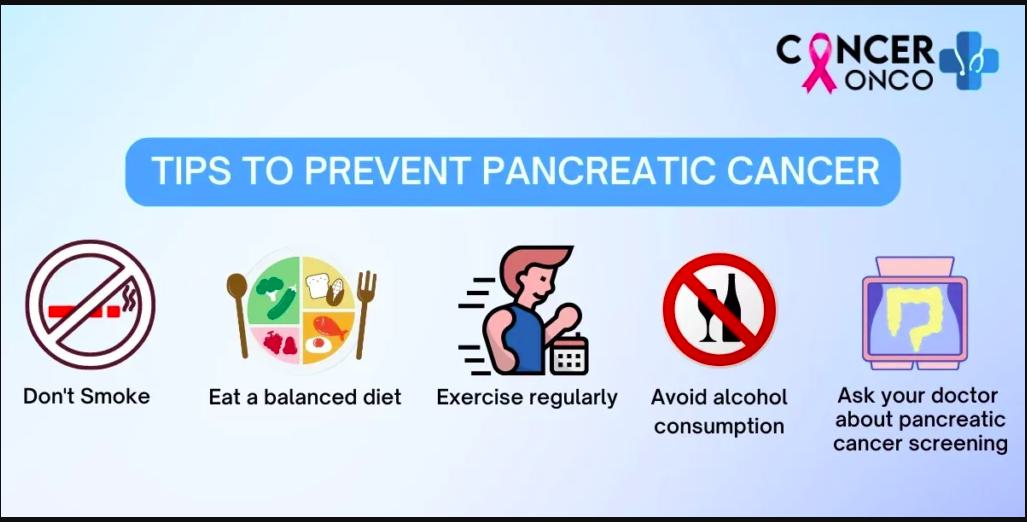Pancreatic cancer is one of the most aggressive and challenging cancers to diagnose and treat. With its often late detection and limited treatment options, it is a disease that demands awareness and proactive prevention strategies. Understanding how to prevent pancreatic cancer can play a significant role in reducing the risk and improving overall health outcomes.
While no prevention method is 100% effective, medical research shows that lifestyle choices and risk factor management can greatly influence a person’s chances of developing this condition. By educating yourself on prevention, symptoms, and treatment options, you can make informed decisions that may help safeguard your health and that of your loved ones.
Definition and Overview
Pancreatic cancer occurs when abnormal cells grow uncontrollably in the pancreas, an organ responsible for aiding digestion and regulating blood sugar. This type of cancer is often diagnosed at advanced stages, which makes prevention and early detection vital. The most common form is pancreatic ductal adenocarcinoma, which develops in the cells lining the pancreatic ducts.
Types
There are two main types of pancreatic cancer:
- Exocrine tumors: The most common type, usually adenocarcinomas, which arise from the exocrine glands.
- Endocrine tumors (neuroendocrine tumors): A rarer form that develops in hormone-producing cells of the pancreas.
Causes and Risk Factors
The exact cause of pancreatic cancer is unknown, but several risk factors can increase the likelihood:
- Family history of pancreatic or related cancers
- Chronic pancreatitis
- Smoking and excessive alcohol use
- Obesity and lack of physical activity
- Type 2 diabetes
- High-fat, processed diets
- Genetic mutations (BRCA1, BRCA2, and others)
Understanding these risk factors is essential when learning how to prevent pancreatic cancer, as many of them can be modified through lifestyle changes.
Symptoms and Early Warning Signs
Pancreatic cancer symptoms often appear late, but early signs may include:
- Unexplained weight loss
- Jaundice (yellowing of skin and eyes)
- Abdominal or back pain
- Loss of appetite
- Fatigue
- New-onset diabetes
Recognizing these early warning signs is crucial for timely medical evaluation.
Diagnosis
Diagnosis typically involves imaging tests such as CT scans, MRIs, or endoscopic ultrasounds. Blood tests to detect tumor markers, such as CA19-9, and biopsy procedures may also be required to confirm pancreatic cancer.
Treatment Options
Treatment depends on the stage and type of cancer:
- Surgery: Such as the Whipple procedure, for eligible patients.
- Chemotherapy and radiation therapy: To shrink tumors or slow progression.
- Targeted therapy and immunotherapy: Emerging treatments offering new hope.
- Palliative care: To manage symptoms and improve quality of life.
Prevention and Lifestyle Recommendations
If you want to know how to prevent pancreatic cancer, consider these lifestyle adjustments:
- Quit smoking: Tobacco use is a major risk factor.
- Maintain a healthy weight: Obesity significantly increases risk.
- Adopt a balanced diet: Focus on fruits, vegetables, whole grains, and lean proteins while limiting red and processed meats.
- Exercise regularly: At least 150 minutes of moderate activity per week.
- Limit alcohol consumption: Excessive drinking can cause chronic pancreatitis, increasing risk.
- Manage medical conditions: Such as diabetes and high blood pressure, under medical guidance.
While prevention is not absolute, these strategies may lower your risk substantially.
Prognosis and Survival Rates
Pancreatic cancer has a lower survival rate compared to many other cancers due to late detection. The 5-year survival rate is approximately 12–13%, but early detection and treatment can significantly improve outcomes.
Latest Research and Innovations
Ongoing research is exploring:
- Genetic testing for high-risk individuals
- New drug therapies and immunotherapies
- Advanced imaging for earlier diagnosis
- Clinical trials offering access to cutting-edge treatments
These innovations aim to improve survival rates and quality of life for patients.
Coping and Support for Patients
A diagnosis of pancreatic cancer can be emotionally overwhelming. Support groups, counseling, and holistic care approaches can help patients and families cope. Emotional well-being, stress management, and strong social networks are essential for navigating this journey.
Conclusion
Understanding how to prevent pancreatic cancer is crucial for reducing risk and improving long-term health. While genetic factors cannot be controlled, adopting a healthy lifestyle, avoiding tobacco and excessive alcohol, and staying alert to early warning signs can make a significant difference. Awareness, prevention, and medical guidance remain the strongest tools in fighting this disease.
FAQ
1. Can pancreatic cancer be prevented completely?
No, but lifestyle changes such as quitting smoking and maintaining a healthy weight can lower risk.
2. Who is most at risk for pancreatic cancer?
Individuals with a family history, chronic pancreatitis, diabetes, obesity, or who smoke are at higher risk.
3. What foods help prevent pancreatic cancer?
A diet rich in vegetables, fruits, whole grains, and lean proteins while limiting processed foods and red meats may reduce risk.
4. Does exercise reduce the risk of pancreatic cancer?
Yes, regular physical activity helps maintain a healthy weight and improves overall cancer prevention.
5. Should I get screened for pancreatic cancer?
Routine screening is not recommended for everyone, but individuals with strong family history or genetic predispositions should consult their doctor.

